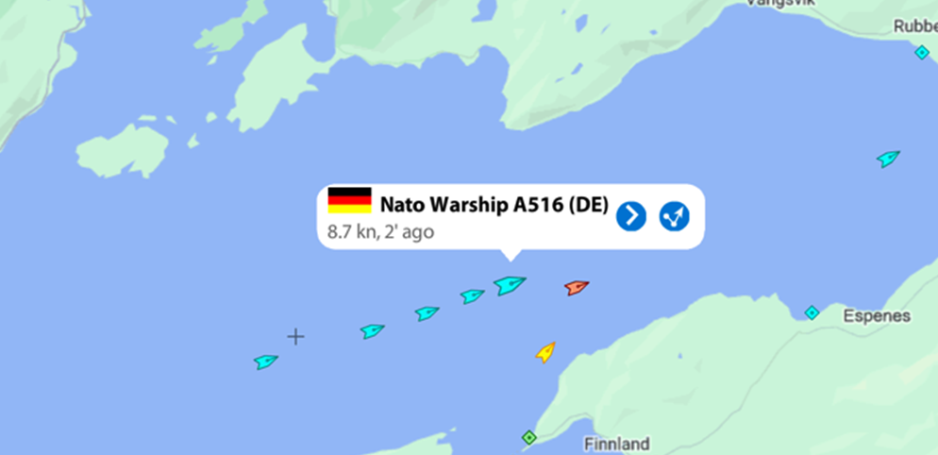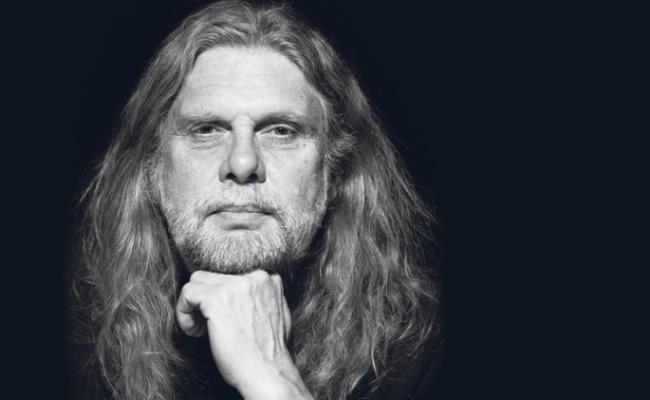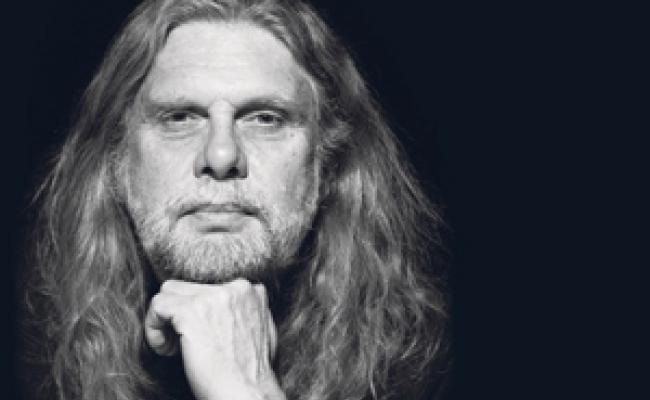Iron Ore Ships Are Replaced By War Vessels. The New Normal in the North.

NATO's military vessels sail like pearls on a string into the Vestfjord and northward. (Screenshot from Marine Traffic)
Commentary: It is not just the view of the Vestfjord, in which iron ore ships have been replaced by military vessels, that has changed. Our entire northern entitlement has been given a new rationale. Yet, this is still about Russia and resources.
If not in the way we once thought, after the then MFA, now PM Jonas Gahr Støre took to the stage in the north in 2005. He then launched the High North policy, in which the Arctic people and the High North were in focus. It had both practical and rhetorical consequences.
We rose
We rose in a sort of pride without it making any noteworthy impression on those holding the purse strings further south. Currently, most of our lives are cataloged as district policy. Increasingly more so, in fact, since a divide has been created between the High North policy within and outside national borders.
Back then, much of the civilian High North footprint revolved around oil, gas, Russia, a bit of fish, and universities.
After Russia's full-scale attack on Ukraine, the incentives are the same: Russia and energy. Yet, it is also completely different from what we believed 20 years ago.
Our daily lives are a reminder of that. Few, if any, places in the Arctic have security policy and defense been more visible than here in Northern Norway.
We see it with our own eyes, like yesterday morning, when five or six military vessels sailed in formation into the Vestfjord between Lofoten and Salten in Northern Norway, passing Barøy on their starboard side and into the Ofotfjord. Onward through the narrow Tjeldsundet, past the naval station in Ramsund and Harstad, before the voyage continued south of Senja. NATO ships from Norway, the Netherlands, Germany, Belgium, and Estonia. An American ship had stopped outside Harstad.
At the same time, in Northern Norwegian fjords, British and Norwegian Coast Guard ships.
Anyone looking further than the supermarket.
The iron ore ships are gone
The iron ore ships, which normally visually dominate the Vestfjord basin, lie idle and anchored outside Narvik. When the Iron Ore Line, the railway line between Narvik and Kiruna of major security policy significance, broke down for the second time in just a few months, the shipping out to the continent halted. The police are investigating the derailment as sabotage. Some link it to Russia's warfare in Europe. It has not been confirmed, but it still validates some of the changes in the geopolitical situation in the North.
It is visible to anyone looking further than the closest supermarket in the south.
The change is also visible in my own newspaper, High North News. The security policy content is taking up increasingly more space, not least because security policy is also about the viability of civil society.
You can now read about American bombers deployed in Northern Sweden, the military exercises Steadfast Defender, Nordic Response, and Arctic Shock, among other things.
The iron ore ships are replaced by war vessels.
At the same time, we are increasingly more often reporting on how European countries, despite sanctions, are buying more and more gas from Russia or how the war, and not the climate, is governing the production of oil and gas.
This is just as much about an infrastructure that suddenly has become more important to others than us who suffer on roads more suitable for horse and carriage than trailers going in and out of the region. Or the already mentioned Iron Ore Line, which has been pushed further and further down on the list of priorities, similar to road construction. Now, they are slowly lifted on the political agenda and eventually in budgets, as they are strategically important to NATO.
Life on the border to Russia
The food and the energy we produce are seen in a different light. Depopulation and population aging have become national problems, not just a worry for local mayors who are unable to finance everything that is required by a municipality.
The view has changed, but perhaps also the insight.
We write about the lives of those who live on the border with Russia. Those who call for civilian rearmament, not just military initiatives. The soft human shields.
About the same time NATO sailed into Vestfjord, Russia's president took to the podium in Moscow. In one of his most warmongering speeches, he did not hesitate to threaten the use of nuclear weapons.
On the other side of the Atlantic Ocean, the probable US president Donald Trump, in a short break between trials, encouraged Putin to attack NATO countries not paying enough.
The views from our living room windows have changed, but hopefully, so has the insight among those who have considered the North a problem, not a solution.




